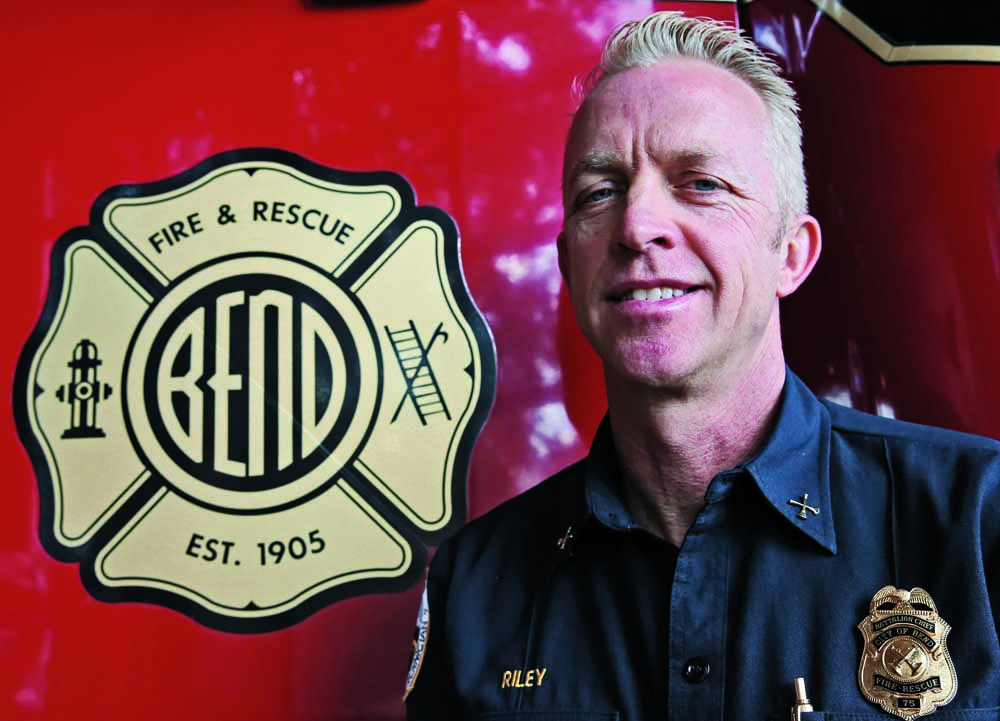Dropping In: Give up on the pursuit of perfection
Published 3:45 pm Wednesday, April 3, 2024

- Exhaustion
“This is delicious,” I told my wife as I sat at the kitchen table Saturday morning.
I was not talking about breakfast. I was talking about an in-depth New York Magazine exposé, a deep dive into the world of neurobiologist Andrew Huberman called, “Andrew Huberman’s Mechanisms of Control: The private and public seductions of the world’s biggest pop neuroscientist.”
I found my way to it after seeing odd comments for a couple of days on the Instagram of @Hubermanlab, the account of Stanford University neurobiologist Andrew Huberman, a popular podcaster in the world of self-improvement and optimization.
In recent Hubermanlab posts, commenters seemed to be weighing in on a different topic than the matter at hand. Some were of a “Guess he’s just going to ignore it” kind of nature. Ignore what? I wondered. “Who cares about his private life? It’s the science that matters” was the gist of others.
I became curious as to what they were debating, so to Google I went. I found a sprawling piece in which the writer, Kerry Howley, interviewed colleagues of Huberman’s as well as ex-girlfriends of his. A conclusion you might draw from reading it is that Huberman might help others strive to be their best selves, but as described by people who know him, he comes across as unreliable, insecure, angry and philandering.
I found it fascinating, as were the comments beneath it, by turns defensive and others discussing the toxicity that surrounds so-called optimization. You can read it and draw your own conclusions. Everyone who reads it seemed to. Huberman has his defenders who want to keep the scientific advice separate from his personal life, and those who feel his poor behavior something of a dealbreaker.
I’ve followed Huberman’s Instagram for close to three years. Given his skateboarding background, he was on the skateboarding world’s radar fairly early: In 2021, I caught a Jenkem skate mag video on Youtube in which Huberman shared breathing tips to combat fear or to calm one’s nerves. As an uncertain skateboarder of a certain age, I was hooked.
Which is why I started following him on Instagram, where, as of this week, he has 6.2 million followers. That’s a lot! But I don’t think I ever made it through a full YouTube video, often which feature Huberman interviewing other scientists or presenting what feels like a dissertation, citing references along the way. Three hours and 11 minutes on “Finding Your Purpose”? Purposeless, I will remain. But, hey, more power to those with the sort of attention span that allows them to — wait, there are episodes on improving focus and attention span? But they’re over an hour and a half. Only movies and binge-watching shows get that kind of attention out of me, mister.
Even if I watched the whole thing, I’d remember only the gist.
You can tell me about this or that peer-reviewed study that proves the calming efficacy of two quick inhales — a longer one, and then a shorter one to capacity — followed by a relaxing exhale.
But I promise that I’ll never remember to seek out the source material. If it works, I’m sold, and that’s all I’ll remember, and if you have Huberman’s bona fides, I’ll believe you. For me, the Instagram feed was plenty. I’m a shortcuts guy, thanks.
Once I accepted I was but a casual self-improver, I’d watch the occasional short Huberman Reel and tune out the rest. I want to be healthy, but I find self-optimization efforts as exhausting as virtually every other aspect of modern life. It all seems like more noise, more goals to fall short of, and not an actual path to happiness.
As someone asked on Reddit three years ago, “Does anyone find the relentless ‘optimization culture’ a bit grating? … It seems really difficult to just be your flawed self in a world where the smartest, financially successful, or those with the best bodies constantly flood the Internet with new content telling us how to optimize something.”
I guess all I’m saying is I don’t feel like I could remotely live up to all the advice that’s out there, and I felt that way 20 years ago when most of that advice came from glossy magazines. Short of a more regimented life, I want to eat well, get rest and exercise and have some social connection.
That’s the kind of practical advice Huberman has distilled into his five pillars of health and performance: proper sleep, early sunlight (and avoiding blue light late in the day), exercise/movement, nutrition and relationships/social connection.
It may be obvious stuff to some, but sometimes you need to hear it said out loud, to be reminded that you’re falling short in an area or two. That breathing technique I mentioned above is called the physiological sigh, by the way. I try to do it a few times a day. It helps when I feel panic in this rushing, stressful world. It was discovered in the 1930s, but I hadn’t heard of it until Huberman popularized it.
When I need a nap but don’t have time, I sometimes listen to a 15- or 20-minute Non-Sleep Deep Rest, a relaxation and rest/recovery technique Huberman developed from Yoga Nidra, which itself is based on ancient tantric relaxation. There are guided videos and podcasts about it on Youtube and Spotify. It’s restorative as heck, and I can’t recommend it enough.
I can see where Huberman’s fans want to defend him. To err is human. I can also see why for many, the way he conducted himself in some personal and professional relationships is a dealbreaker.
Opinions are divided, and so are mine. I won’t be defending him, but I’ll keep sighing and NSDRing.
As Howley, the author of the New York piece, wrote, “Morning sun remains salutary. The physiological sigh, employed by this writer many times in the writing of this essay, continues to effect calm.”
We probably shouldn’t expect perfection out of anyone, not ourselves and especially not me.
What you can count on out of me is my need to take a nap, or at least grab a quick NSDR.







